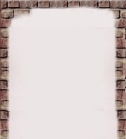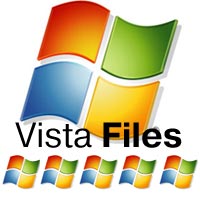|
Block
Spam with your email program.
This would have to be the least
preferred method because the email has already fully downloaded
to your computer before the filters will take effect.
This means at the very least that you have paid (in
bandwith and download volume) to have an email delivered that you
didn't want.
However, you can make your email
program filter pretty efficiently for you providing you monitor
it to keep the results up-to-date.
Monitoring for false positives is
something you have to do regardless of which method you use in
any case.
How you set up the filters for
your specific email program will vary a little as the menu names
etc may be different. I will give instructions on how to
set up Outlook 2003 as that is the version I have.
These Instructions come from the
Outlook 2003 Help file (hey, it is possible to look stuff up you
know)
Creating Rules:
Assume you want
the e-mails coming from brent@spam-killa.com to go to a specific
folder, all you have to do is to create a rule for that:
Select the Inbox folder
from Mail folder on the left of your screen.
Go to Tools>Rules and
Alerts. A new window will appear.
Select the E-mail Rules
tag: Click on the New Rule button.
Select Move new messages
from someone. Click on Next.
Select condition(s): from
people or distribution list. Then from the rule description area
at the bottom of this window click on the link that says people
or distribution list and type in the corresponding email the
From field. Type in “ brent@spam-killa” in this
case. Click on Next.
From the Select action(s)
window check the move it to the specified folder. Click on the
link that says move it to the specified folder from the rule
description area at the bottom of this window. You will get a
list of all folders in your Outlook account. Click on Inbox and
from the right click on New then type “Mail From
Spam-Killa”. A new folder named Mail From Spam-Killa is
created.
If you have any exceptions,
you will have to include those from the Select exception(s)
window. When done click on Next.
Finally give your rule a name: “Emails from
Spam-Killa” under Step 1. Under Step 2 you can choose to
run the rule currently found in your inbox, and you can choose
to turn the rule on or off. Select both options for now. View
the changes.
You can use these to act as a White list and move all your
know good emails to various folders to sort them out, for example
you can have a folder called Family, another called Newsletters
etc. Each of these can be sub-sorted into sub-categories if
you want to get extremely tidy. Actually, I find that this
is a really good way to make sure I can find old emails when I
want them later, it's a bit anal but it really helps when you get
100s of emails per day.
Essentially, any email which gets
in my inbox that doesn't have my email address in the To: or Cc:
fields is automaticaly sent to the Spam folder. Every thing
which isn't already sorted by the Rules will be in the Inbox and
I create a new Rule for each one to filter it into an existing or
new folder.
You can add a new filter by right-clicking on the email itself
and choosing 'Create Rule...' from the drop down menu.
Outlook also has a Junk E-mail filter built in. Quoting
from the Help file again:
The new Junk E-mail Filter replaces the rules used in
previous versions of Microsoft Outlook to filter e-mail messages.
The Junk E-mail Filter feature is on by default, and the
protection level is set to Low, which is designed to catch the
most obvious junk e-mail messages. Any message that is caught by
the Junk E-mail Filter is moved to a special Junk E-mail folder,
where you can retrieve or review it at a later time. You can make
the filter more aggressive, which may mistakenly catch legitimate
messages, or you can even set Microsoft Office Outlook 2003 to
permanently delete junk e-mail messages.
There are
two parts to the Junk E-mail Filter: the Junk E-mail Lists and
the state-of-the-art technology developed by Microsoft Research
that is used to evaluate whether an unread message should be
treated as a junk e-mail message based on several factors, such
as the time it was sent and the content of the message. The
filter does not single out any particular sender or type of
e-mail message. The filter is based on the content of the message
in general and uses advanced analysis of the message structure to
determine the probability that it is a junk e-mail message.
I disagree with their statement
that this replaces the Rules, you should use it in conjunction
with the Rules for filtering. Some of the filtering rules
will be absolutley useless for you, for example - 'time it was
sent' what sort of rule is that? Typical UScentric
attitude. The internet is global and there is more than one
time zone. This should not be used to determine if an email is
junk or not, it is also very easy to fake.
I am guessing that Microsoft
Research have taken the industry standard Baysian filtering
algorithm and added some rules so they can call it 'advanced
analysis'. The method used by Microsoft is one which
has been around for a long time and is an integral part of
MailWasher, the free POPFile program and several other spam
blocking tools.
I use Thunderbird on my home
computer so I'll cover that next.
Or you could go to
www.spam-killa.com/spamkiller.php
and use the easy to use spam deletion tool. You'll still need to
know your email user name and password but you won't have to play
with any settings, just decide which ones you want to keep and
delete the rest.
Copyright Brent Milne.
2007
brent (at)
spam-killa.com
http://www.spam-killa.com
|













